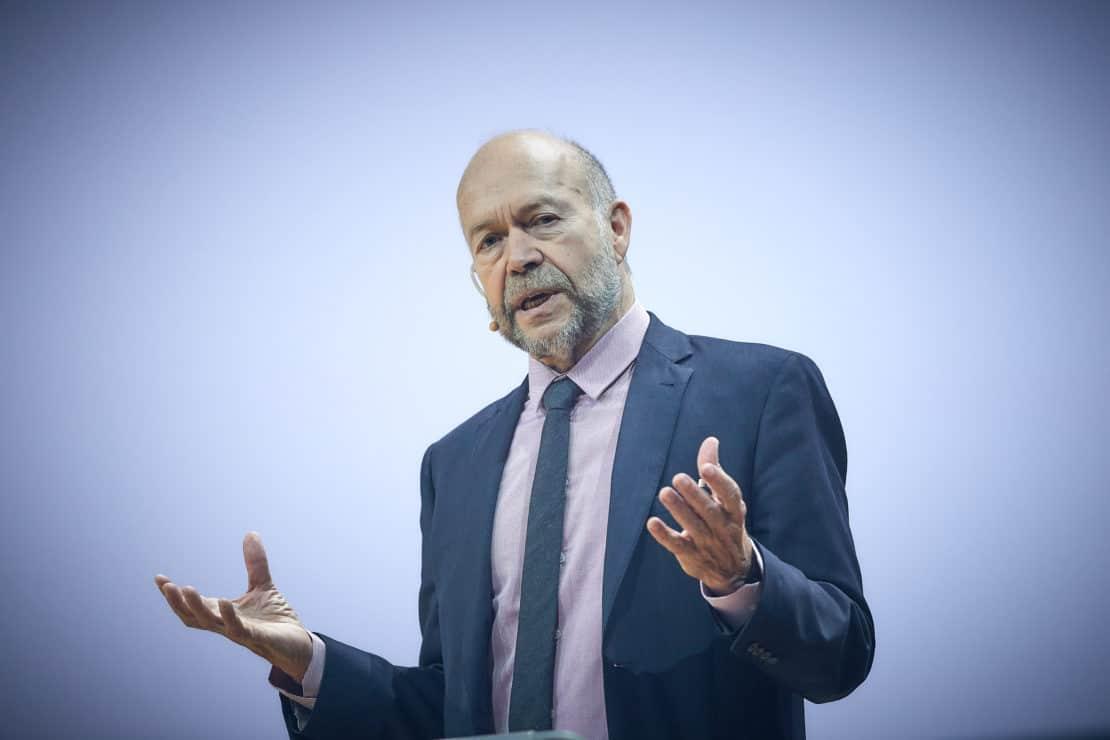4Feb2018
Future generations are going to go hungry if we continue to waste food at current rates.
Each year, 1.3 billion tons of expired, leftover and “ugly” produce gets thrown away, much of which ends up in landfills. Across Europe, the average household wastes €900 a year on food that never gets eaten.
Food waste is a problem all over the developed world, and it is something activist Selina Juul has fought against for several years with considerable success.
Twenty-five years ago, Juul moved with her mother from Russia to Denmark, where the abundance of food was a stark contrast to the empty supermarket shelves of her homeland.
In 2008, she set up a Facebook group called Stop Wasting Food and through working with successive governments, supermarkets and schools, Juul helped Denmark reduce its food waste by 25% between 2010 and 2015.
Why this matters
The question of “why” was put to Juul at the Nordic Business Forum 2017 in a moderated discussion on the fight against food waste. Why go to such lengths to stop food waste?
Event moderator and host Richard Quest referred to the old saying used to guilt-trip every child into eating everything on their plates: “there are starving children in Africa”. But people have become accustomed to food just being there and realistically, it wouldn’t make a difference to the children in Africa whether that food in front of you is eaten or not.
But on the bigger picture it does, Juul responded.
About one-third of the world’s produced food is either lost or wasted, amounting to billions of dollars going down the drain. With the world’s population growing at the rate it is, there is no way current food production systems can keep up.
“We’re going to be 12 billion people on this planet by the end of the century. If we keep producing the food to feed our garbage, there won’t be any resources left,” Juul warned.
“We need to change the way we consume.”
What can food industry do to reduce food waste?
The first question from the audience for Juul asked: “what is the most important thing the food industry can do?”
One of the things food producers in Denmark are doing is turning food waste into profit, Juul explained. She works with Norwegian multinational supermarket chain Rema 1000, which has 283 stores in Denmark, to change the way they use waste products.
This includes making soup and other food products out of “ugly” vegetables – the otherwise fresh produce that doesn’t sell because it is not aesthetically pleasing. These products could also get used in catering because nobody cares what the food once looked like once it has been chopped up and cooked, Juul explained.
And it seems corporates want to get onboard with reducing food waste. When asked what resistance she’s met so far, Juul said there has barely been any because everyone agrees something needs to be done.
Steps for the consumer
Moving from the corporate level to the consumer level, Quest asked: “what is the first step that anyone can take?”
Juul offered some simple advice for individuals looking to reduce food waste.
- It all begins in the kitchen. Copy what supermarkets do and put older items at the front of the fridge.
- Then identify your UFOs – unidentified frozen objects. This is food you put away in the freezer to use later, but end up completely forgetting about.
- Before going to the supermarket, write a shopping list or take a photo of the inside of your fridge.
- At the supermarket, carry a shopping basket, so you don’t over-buy and don’t cook too much food at once.
- Don’t be afraid of asking for a doggie bag if you can’t finish your food at a restaurant. In Denmark, 800 restaurants offer a biodegradable doggie bag in partnership with Unilever and Stop Wasting Food.
- Learn to cook with leftovers: Juul has published a book with Danish celebrity chefs about leftovers and how you can turn them into “new” food.
You might expect it would be nerve-wracking hosting someone like Juul for dinner – a point another audience member made when they asked her: “is there any food tasting so bad you would throw it away if somebody served it to you?”
Earlier in the session, she mentioned that she and her organization were not the “food police” and weren’t there to tell people off for wasting food or to assign blame. She was here to create solutions.
She reiterated that point and ended her time on stage with a concise and clear call to action:
“Reuse, recycle, save your time, save your money and save the planet.”
This article is a part of the Executive Summary of Nordic Business Forum 2017. Get your digital copy of the summary from the link below.


